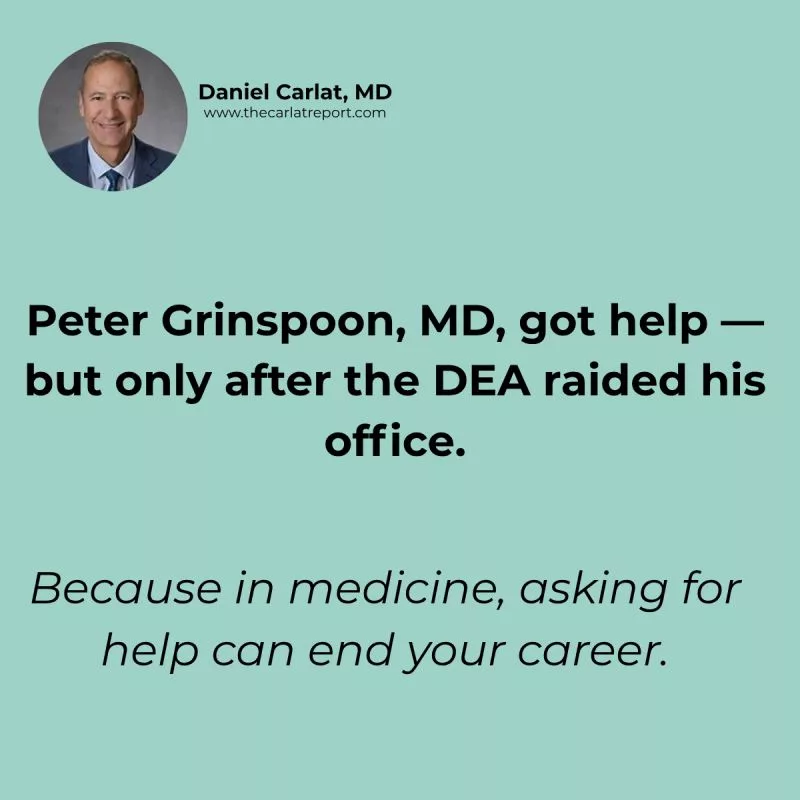It was a very bad day for Peter Grinspoon, MD. He arrived at his office prepared to see patients. Instead, he found DEA agents and state police rifling through his files.
They had the evidence: forged prescriptions, pill bottles, aliases.
Three felony charges followed.
At the time, Grinspoon was deep in opioid addiction—snorting crushed Vicodin between appointments, writing fake scripts for friends and family, and picking them up himself.
“I was fingerprinted in front of my patients,” he later wrote. “That was the end of my medical career—or so I thought.”
That raid began a long, difficult recovery. But in this month’s Carlat Hospital Psychiatry Report, Grinspoon tells a bigger story—one that challenges how we handle physician addiction. Because what came next wasn’t just treatment. It was punishment.
▸ A mandatory 90-day rehab he describes as outdated, religious, and alienating
▸ A state board that stripped his license and kept him under surveillance
▸ And a refusal to allow him evidence-based medications—like Suboxone—because of stigma His central argument is simple but urgent: Physicians with addictions are held to a different standard—one that often hurts more than it helps.
▸ Suboxone is often banned for doctors in recovery, despite lowering overdose deaths by up to 80%
▸ Abstinence-only expectations dominate, even when science says otherwise
▸ State boards prioritize liability over healing
▸ And the fear of losing one’s license keeps many from seeking help at all “A monitored physician is far safer than one too afraid to seek help.” Grinspoon believes it’s time to modernize the system:
▸ Treat addiction as a chronic illness—not a moral failure
▸ Offer pluralistic recovery options, including medications, not just abstinence
▸ Stop conflating impairment with treatment
▸ Make confidentiality the norm—not the exception
▸ And rebuild a culture where physicians are allowed to be human He’s lived both sides of the system: doctor in crisis, and now, a physician health leader. His story is a rare look behind the curtain—and a call for real reform.
This conversation appears in the Summer 2025 issue of The Carlat Hospital Psychiatry Report. Have you seen this double standard in your own system? Share if this calls for a change in how we treat physician addiction.
Follow me (Daniel Carlat, MD) for reflections on practical psychiatry and reform from the inside out.
Join the conversation on LinkedIn with Dr. Carlat.


_-The-Breakthrough-Antipsychotic-That-Could-Change-Everything.webp?t=1729528747)



